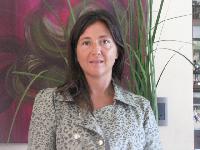Learning about the process that a drug has to go through till it can reach market is a complex web that the translator needs to know to address the translation task successfully. Process, procedures, regulatory bodies, types of studies and components, among others, will be explained, along with the relevant terminological challenges these may convey to the non-medical linguist.
Learning about the process that a drug has to go through till it can reach market is a complex web that the translator needs to know to address the translation task successfully. It takes on average 12 years and over US$350 million to get a new drug from the laboratory onto the pharmacy shelf. Once a company develops a drug, it undergoes around three and a half years of laboratory testing, before an application is made to the U.S. Food and Drug Administration (FDA) to begin testing the drug in humans. Only one in 1000 of the compounds that enter laboratory testing will ever make it to human testing.
If the FDA gives the green light, the "investigative" drug will then enter three phases of clinical trials. The company then submits an application (usually about 100,000 pages) to the FDA for approval, a process that can take up to two and a half years. After final approval, the drug becomes available for physicians to prescribe. At this stage, the drug company will continue to report cases of adverse reactions and other clinical data to the FDA.
Understanding this cycle is vital for medical translators and, once digested, it can become an endless source of reference, reliable sources of information and terminology, and a valuable self-catering training tool.
This training course is divided into 2 parts, in order to cover broader content.
Upload Date
April 20, 2017
Trainer Bio
Luciana Ramos - Se graduó como traductora técnico-científica y literaria e intérprete en Rosario, Argentina. Es traductora en inglés certificada por la American Translators Association de los EE. UU. Se graduó como traductora técnico-científica y literaria e intérprete en Rosario, Argentina. Es traductora en inglés certificada por la American Translators Association de los EE. UU. Actualmente cursa el Máster universitario en traducción médico sanitaria de la Universidad Jaume I de Castellón, España. Con especial énfasis en la traducción de textos de biomedicina, trabajó desde 1996 hasta 2005 para diversas empresas multinacionales en el área de la medicina y la traducción de programas informáticos. En los últimos diez años, su experiencia como traductora y correctora se combinó con la tarea de formación de nuevos profesionales gracias a su incesante participación en cursos y seminarios internacionales relacionados con la traducción médica. Desde 2005 a junio de 2011 fue socia de Ocean Translations S.R.L., donde su labor se centró en la selección y formación de personal, el análisis y la implementación de las nuevas tecnologías, y el control de calidad. Participó en los trabajos de traducción para la OMS, la OPS, el Banco Mundial, ONUSIDA y muchos otros centros de investigación y desarrollo biomédico. Actualmente se dedica a la traducción como profesional autónomo, a la formación de traductores, y al asesoramiento empresarial en traducción y tecnologías afines. Ha publicado artículos en las revistas Panacea y Multilingual sobre las tecnologías, la traducción médica y la profesión en general. Luciana Ramos is an ATA-certified professional translator, with more than 17 years of experience, and special focus on medical translations and software localization. Her professional background as a translator encompasses different roles in the language and technology industry —terminologist, translator, editor, language lead, translators' trainer— for international organizations, direct clients and LSP. Luciana Ramos is an ATA-certified professional translator, with more than 17 years of experience, and special focus on medical translations and software localization. Currently, she is studying a Master on Medical Translation at Universidad Jaume I, Castellon, Spain. As a former company owner, she developed TEP QA processes and procedures for ISO-certification; lectured worldwide on vendor management, machine translation, tools and QA; and gained a different perspective of clients’ actual needs. Currently, she runs her own business devoted to professional training, consulting and translating/interpreting.
See less...

